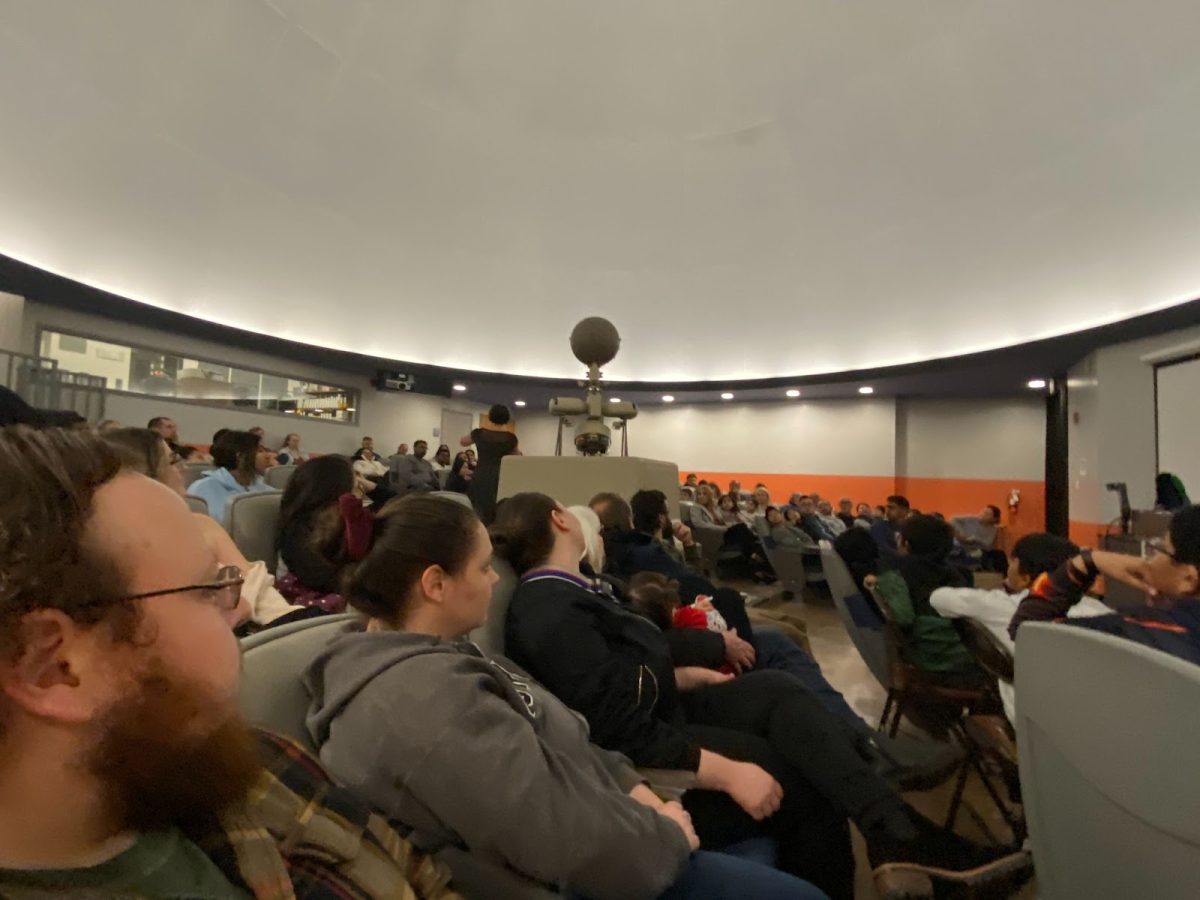“No End,” a film based in Poland, begins with a shot of a funeral from up above. An agglomeration of candles and people clad in black and flowers fill the frame from end to end. Someone has obviously died, but whom? The scene cuts to a room in a house. There’s a bookshelf with a brilliant red and blue backpack on it, a grand piano and an earthy looking chair all centered around a bed. A man tries to touch a boy’s head but can’t. He takes a seat then begins to describe his own death.
This scene along with the rest of the movie was directed by Krzysztof Kieslowski. “No End,” and a great deal of Kieslowski’s other films and documentaries have and will be screening at the Armer Screening Room located in Manzanita Hall every Thursday at 7 p.m. until May 16, with the exception of April 11, as part of the CSUN Cinematheque program.
Kieslowski was a Polish film director and screenwriter who got his start as a professional when his graduate project “From the City of Lodz,” a documentary, was released in Poland. He also attended school in Lodz at the Lodz Film School from 1964 to 1968.
“I always managed to make one or two films a year,” Kieslowski said in his book “Kieslowski on Kieslowski,” which was edited by Danusia Stok. “That was one of the school’s objectives–to enable us to enter that world, as it were, and stay there a bit.”
After graduating, Kieslowski became a prolific director, releasing 45 films, documentaries, and short subjects over the next 26 years until his retirement in 1994 and his subsequent death in 1996.
Death, as it happens, is a central theme in his films. Of his 23 feature films that I saw or researched, someone died or talked about death in 12 of them. In “Decalogue I,” the film’s opening dialogue is a child speaking with his father about what death is. Viewers of “The Double life of Veronique,” another one of Kieslowski’s films, and “No End,” eventually see a main character die.
The morose nature of his films hasn’t stopped people from watching. At the screening of “No End,” the Armer theater was nearly full.
“The cinematography probably,” Lindsay Beg, a Cinema and Television Arts major, said when asked what she liked most about “No End.” “I liked a lot of the shots and the main actress was really good.”
Still, Kieslowski’s biggest fan there had to be CTVA Professor Tim Halloran, the host of the CSUN Cinematheque program.
“He’s one of the most important directors in the history of Polish cinema,” Halloran said of Kieslowski. “The problems, the difficulties that directors faced in Eastern Europe are well known and the influence that he had not just in European cinema, but in the history of world cinema is profound.”





